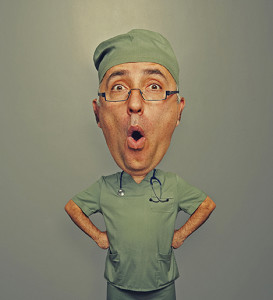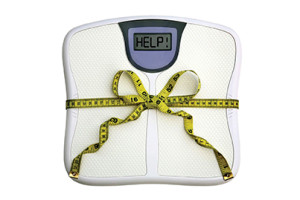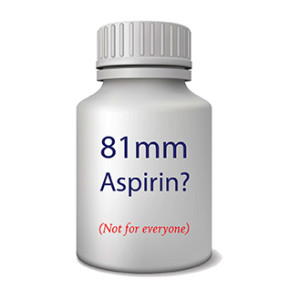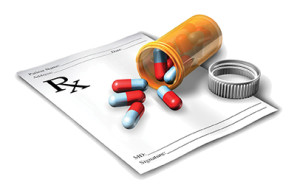Things Your Doc Wants You To Know
Posted on August 30, 2014 by bob in Features
1. Don’t Be Embarrassed — We’ve Seen It Before
Whatever your symptoms, no matter how crazy, unusual, or embarrassing, your doctor has seen it before, and probably once or twice this week.
“I want my patients to know that they can bring up any topic with me,” says Barry Egener, M.D., a Portland, Oregon, internist and medical director of the Foundation for Medical Excellence.
“We see and hear everything,” he says, “and it’s helpful for us to know what’s worrying you. If you’re feeling not sure whether or not you should say something, you probably should say it. If you’re feeling on the fence, bring it up. We accept that people come in with every potential history and past behavior.”
Tell the doctor the story of your symptoms, not just a list of them, urges Leana Wen, M.D., emergency room physician at George Washington University and co-author with Joshua Kosowsky, M.D. of When Doctors Don’t Listen: How To Avoid Misdiagnoses and Unnecessary Tests. Instead of saying, “I have a headache,” start from the beginning.
“A good story has a beginning, middle, and an end, and usually an element of surprise,” says Dr. Wen. “So if you say, ‘I’m someone who’s had migraines for 10 years, but for the last three days, I haven’t been able to get out of bed. I’m really worried that I have bleeding in my brain,’ you’re giving your doctor a lot of information in a context. It will help him or her diagnose you.”
Tip: Rehearse your story before you get to the doctor’s office so you can include all the information in the most concise form possible.
3. We Know That Weight Is a Touchy Subject
If you are overweight, losing a relatively small amount of weight can make a big difference in your health. It can lower blood pressure, reduce pain and stress on joints, and reduce the risk of diabetes, cardiovascular disease, even, some studies suggest, cancer. But doctors know losing weight isn’t easy, that food can bring pleasure, draw families together, and be a highlight of any trip, celebration, or even any given day.
“We also know that there are health consequences to being overweight,” Dr. Egener says. “We know that you cannot abstain from food the way you can abstain from drugs or alcohol. You need it to survive.”
So when the doctor asks you to lose weight, they’re not ignorant of the difficulty, but aware of the health benefits you’ll gain if you can drop even a few pounds.
 4. Don’t Use the Internet to Diagnose Yourself
4. Don’t Use the Internet to Diagnose Yourself
If you search your symptoms on the Internet, you can come to some wild—and wrong—conclusions, says Dr. Wen. Have nausea and fatigue? Frequent headaches? That could be anything! However, the World Wide Web can be very helpful if you’ve already got a condition and you are having new or odd symptoms, Dr. Wen says. But users beware.
“All web information is not created equal. You have to understand what’s a testimonial versus a research site,” Egener says.
In general, stick with government sites such as cdc.govor medscape.com, where you can find the latest research and legitimate medical studies.
5. Not Everyone Should Take An Aspirin A Day
There is much research to support an aspirin-a-day therapy to prevent heart attacks and strokes, but the prescription is not for everyone, Dr. Egener says.
“It’s a decision that must be made on an individual basis,” he says. “For some people, the risk of GI bleeding can outweigh the benefits.”
Some studies have shown that even very low doses of aspirin can cause bleeding in the intestinal tract. That’s understandable since the way that aspirin prevents heart attacks is by thinning the blood and affecting its platelets (the materials that make it clot.) If the blood is thinner, it may be more likely to cause bleeding in the gut. DO NOT start an aspirin a day regimen without consulting your doctor.
 6. We Like It When You Bring a Friend to an
6. We Like It When You Bring a Friend to an
Appointment
“It’s one of the most critical things that patients can do to help themselves,” says Dr. Wen. “I know that [adults] want to seem self-sufficient and feel that perhaps it’s embarrassing to need to bring someone along, but it can really help you understand what the doctor is telling you.”
If you’re at the doctor because you don’t feel well, it’s hard to advocate for yourself. A friend or relative can be a real ally in the office. Be sure to remind your companion that you do want to speak on your own behalf as much as possible (because, says Dr. Egener, it’s important for the doctor to connect with you as a patient and to assess by your questions and answers what your condition is.)
7. Use the Front Office to Your Advantage
“We have appointments of different lengths for different purposes,” Dr. Egener says. “It takes longer to do a physical, but we have a shorter appointment if you come in for a rash.”
Make sure to communicate effectively when calling for your appointment — say, “I have three things I want to talk to the doctor about.”
If you hate waiting, ask for the first appointment of the morning or the first one after lunch. Also important: You should have a clear list of things you want to discuss, and be aware that you may not get to all of them.
Lastly, the office staff will ask about insurance. If you don’t have any, say so, and then ask if there is a sliding fee scale. You may be able to negotiate a fee, Egener says.
 8. We Don’t Always Know What Your Medication Costs
8. We Don’t Always Know What Your Medication Costs
If your insurance won’t cover a particular medication—or it’s expensive even with what insurance pays—let your physician know.
“If you cannot afford a medication, usually there is another alternative,” Dr. Wen says. Doctors are willing to discuss medicines they’ve prescribed to their patients.
“I don’t expect that patients are going to agree with me on everything,” Egener says. “I’m the expert in medicine, but you’re the expert on your body.”
Doctors may prescribe a medicine you would rather not take. Discuss your decision carefully with your physician to determine the risks and benefits of not filling a prescription.
Grandparents.com is a lifestyle site celebrating the grandparent community with trusted information about family, relationships, health, well-being, travel, retirement and more. Twitter: @grandparentscom; facebook.com/grandparentscom. Used by permission.










